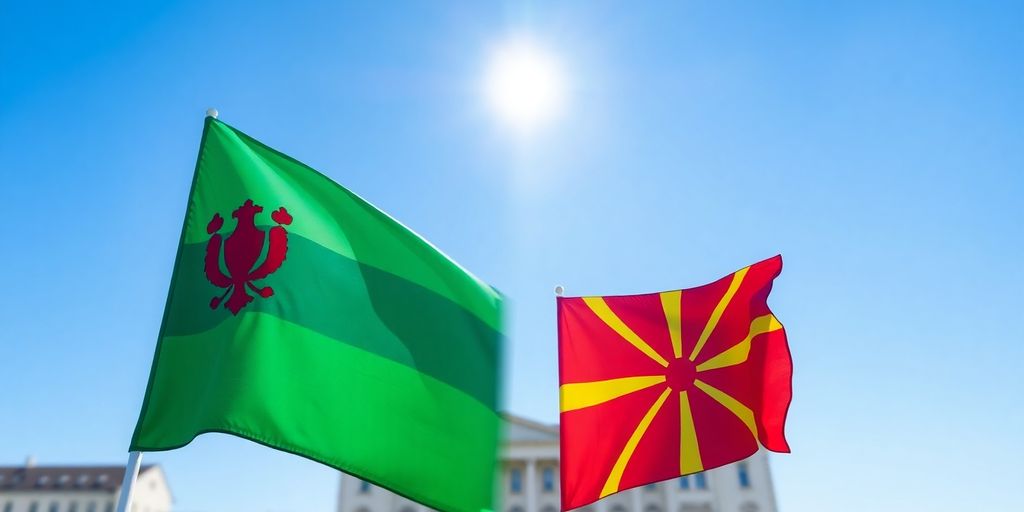Bulgaria’s recent delay of North Macedonia’s EU accession vote has ignited significant diplomatic tensions and protests. This move, stemming from long-standing historical and cultural disputes, has stalled North Macedonia’s progress toward European Union membership, despite calls from EU officials for both nations to resolve their differences and advance regional stability.
Key Takeaways
- Bulgaria’s MEPs delayed the vote on North Macedonia’s EU accession report, citing unresolved issues.
- North Macedonia’s Prime Minister Hristijan Mickoski stated that his country has faced unique challenges in its EU accession path, often tied to identity and historical events.
- EU foreign policy chief Kaja Kallas urged North Macedonia to make "era-defining" decisions, including constitutional amendments to recognize the Bulgarian minority.
- Bulgarian officials maintain that there is no bilateral dispute, emphasizing that North Macedonia must meet all EU accession criteria.
Bulgaria’s Stance on EU Accession
Bulgarian Prime Minister Rosen Zhelyazkov asserted that there are no unresolved bilateral disputes between Bulgaria and North Macedonia. He stated that all issues were addressed with the 2017 Treaty of Friendship and Good Neighbor Relations. Zhelyazkov emphasized that the current EU negotiating framework for North Macedonia’s membership is based on the "French proposal," which outlines obligations Skopje must fulfill within the multilateral EU accession process, not as bilateral matters. Bulgarian MEPs have consistently pushed back against the notion of a bilateral dispute, insisting that North Macedonia’s delays are due to its failure to implement the 2022 Council conclusions.
North Macedonia’s Frustration and Demands
North Macedonia’s Prime Minister Hristijan Mickoski expressed deep frustration over the prolonged accession process, highlighting that his country has faced unique challenges compared to other EU aspirants. He noted that North Macedonia received candidate status in 2005, alongside Croatia, but remains stalled due to bilateral issues, often related to identity and historical events. Mickoski reiterated that Bulgaria must approve North Macedonia’s membership before any constitutional changes are made, asserting that his country belongs in the EU based on European values and expects fair treatment.
EU’s Role and Concerns
EU Enlargement Commissioner Marta Kos indicated that the European Commission is exploring ways to prevent bilateral issues from blocking enlargement, especially given the current geopolitical climate. While acknowledging North Macedonia’s progress, Kos stressed the need for constitutional amendments to formally recognize the Bulgarian minority, a key condition set by Bulgaria. EU foreign policy chief Kaja Kallas echoed this sentiment, urging North Macedonia to make "era-defining choices" to advance its EU bid. Kallas emphasized that the integration of the Western Balkans is crucial for peace and security in Europe, and the EU is ready to support North Macedonia in strengthening the rule of law, fighting corruption, and modernizing public administration.
Sources
- Is the EU Preparing to Sideline Bulgaria in North Macedonia Talks? – Novinite.com, Novinite.com.
- PM Zhelyazkov: No Bilateral Dispute Between Bulgaria and North Macedonia – Novinite.com, Novinite.com.
- Kallas backs North Macedonia’s EU membership progress despite ongoing obstacles, Euronews.
- Bulgaria: North Macedonia’s EU Future Not Guaranteed Without Meeting All Criteria – Novinite.com, Novinite.com.
- EU presses North Macedonia to make ‘era-defining’ decisions for membership, AP News.






